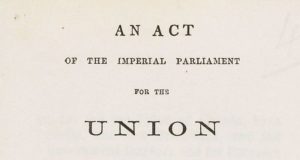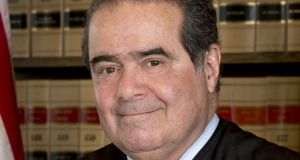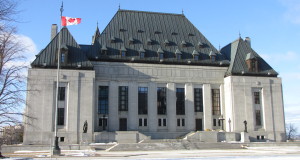This is the first of two articles Mr. Sirota has written in response to Asher Honickman’s essay entitled “The Case for a Constrained Approach to Section 7.” The second article will be published shortly, following which Mr. Honickman will publish a reply. This article was originally published at Double Aspect, Mr. Sirota’s award winning blog. In a very interesting essay written for ...
Read More »Tag Archives: originalism
The Case for a Constrained Approach to Section 7
This article will appear in the upcoming edition of Law Matters, a publication of the Canadian Bar Association Introduction The consensus in the academic community when it comes to interpreting the Charter is that more is better. There is little debate that the Charter is a “living tree,” such that its meaning must “evolve” over time so that it “accommodates ...
Read More »Constitutional Originalism is a Canadian Staple
Few legal concepts have been so little understood yet so much vilified as originalism has been in Canada. Adam Dodek has said that “originalism” is a “dirty word” on this side of the Canada-U.S. border. Following the death of Justice Antonin Scalia, Canadian jurists, including former Supreme Court judges, took to the media to remind us that originalism has no ...
Read More »The Need for Doctrine: Scalian Originalism and Canadian Purposivism
A legal lion passed away recently. One might argue that the death of Justice Antonin Scalia means much more for the American legal audience than the Canadian one. After all, Scalia’s death tossed the Supreme Court of the United States into the centre of an already contentious election season and brought to the forefront the divisively partisan tendencies of the ...
Read More »Reviving Originalism in Canada
Originalism posits that the content of a constitution is determined partly by the intentions and purposes of its founders and the understandings of the founding generation. This essay calls for the (re)introduction of originalism, which has an important place in American politics, legal academia, and courts,1 into Canadian constitutional law. First, I explain the importance of the methodology of constitutional ...
Read More »Justice Miller’s First Major Decision May Surprise His Critics
In December, I questioned the common thought that lawyers, scholars and judges who promote judicial restraint and the rule of law should be called “conservative”. I cited Justice Grant Huscroft of the Ontario Court of Appeal simply applying accepted common law principles to lead to what appeared to be a “progressive” result in the employment law case of Michela v. ...
Read More »In Defence of Constitutional Originalism
The Globe and Mail recently reported that Bradley Miller, a former Western University law professor and a judge on Ontario’s Superior Court, had been appointed to the Ontario Court of Appeal. The Globe’s report drew attention to the following: 1. Miller has criticized gay marriage; 2. Miller has only six months’ experience as a judge; and 3. Miller is an ...
Read More »The True American Import to Canada is the Living Tree, not Originalism
Constitutional originalism, which holds that the meaning of the Constitution remains constant with the passage of time, does not enjoy a great deal of support Canada. It is dismissed as an American phenomenon, and a distastefully conservative one at that. The Canadian Constitution, we are told, is a “living tree” and it is therefore the responsibility of judges to rediscover ...
Read More »The Living Fiction: Reclaiming Originalism for Canada
This Article was published in the Autumn 2014 edition of the Advocates’ Quarterly1 Eighty-five years ago this October, the Judicial Committee of the Privy Council handed down its decision in Edwards v. Attorney-General for Canada, in which it held that “The British North America Act planted in Canada a living tree capable of growth and expansion within its natural ...
Read More » Advocates for the Rule of Law
Advocates for the Rule of Law








